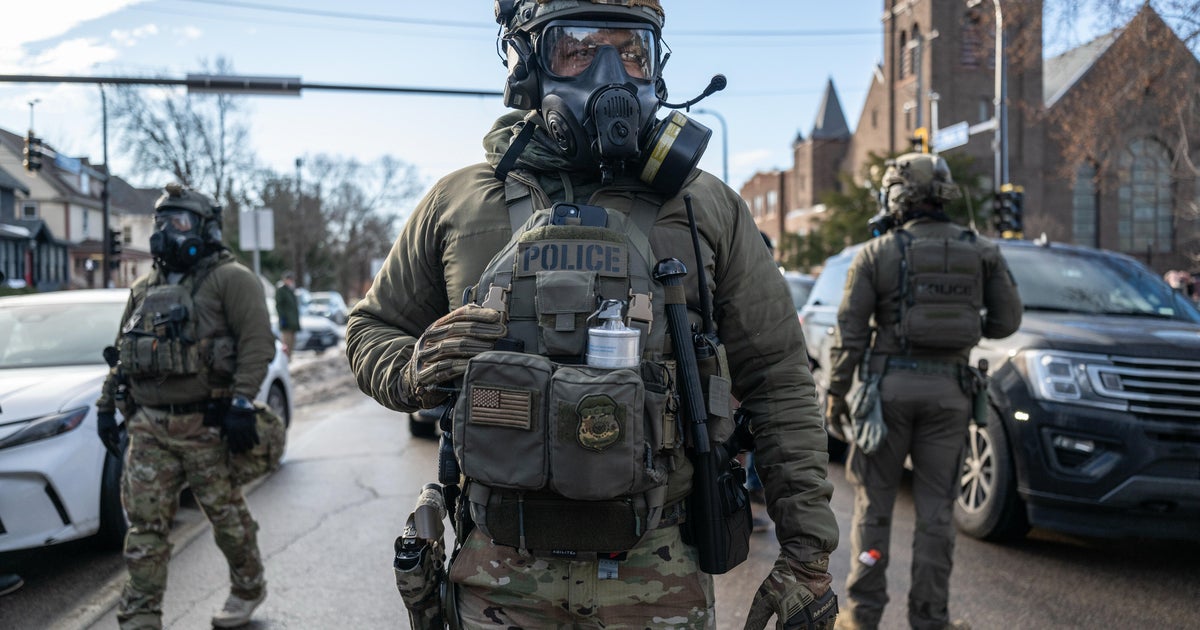Following Cecil Killing, US Moves To Protect Lions
WASHINGTON (AP) — The U.S. will protect lions in Africa under the Endangered Species Act, the Obama administration announced Monday, a move that would make it harder for American big-game hunters to bring a lion head or hide into the country.
The effort by the U.S. Fish and Wildlife Service comes five months after the killing of "Cecil," a lion in Zimbabwe, by a Minnesota dentist caused an international uproar and shed a spotlight on trophy hunting. The agency had been working on the new rules long before the incident, and officials said that classifying the two breeds of African lions as threatened or endangered will encourage African countries to improve conversation efforts.
Dan Ashe, director of the Fish and Wildlife Service, said the approval of any imports will be conditioned on proof that hunting is part of a science-based conservation strategy that enhances the species in the wild. Currently, sport hunters don't need a permit from the U.S. to bring in a trophy lion.
"I believe the American hunter can be an integral part of a vibrant conservation strategy, but the burden will be on the hunter, not the hunted," Ashe said.
The Humane Society of the United States projects that American trophy hunters imported 5,647 lions in the past decade. The group was among those that petitioned the Fish and Wildlife Service to list the lion as endangered.
"Today's announcement is, without question, a turning point for the future of the lions now roaming Africa," said Wayne Pacelle, the group's president and CEO.
The Fish and Wildlife Service determined that two subspecies of lions live in Africa. One group, found primarily in western and central countries, is more genetically related to the Asiatic lion. Only about 1,400 remain in Africa and India. The agency is listing that subspecies as endangered, meaning it risks extinction. Imports for that subspecies will be generally prohibited.
A second subspecies, numbering between 17,000 and 19,000 and found across southern and eastern Africa, will be listed as threatened.
Ashe said historic populations of lions is unclear, but estimates range up to 500,000 early in the 1900s, down to less than 200,000 by the middle of the century, and now, as few as 20,000 remaining in the wild.
The Endangered Species Act requires the Fish and Wildlife Service to list species as endangered or threatened regardless of the country where they live.
"If we want to ensure that healthy lion populations continue to roam the Africa savannas and forests of India, it's up to all of us — not just the people of Africa and India — to take action," Ashe said.
The listings are accompanied by a directive from Ashe that requires Fish and Wildlife Service employees to deny a permit to import a sport-hunted lion to anyone who has been convicted or pleaded guilty to violating federal or state wildlife laws.
Walter Palmer, the Minnesota dentist who shot Cecil with a bow and arrow, had pleaded guilty in 2008 to making false statements to the Fish and Wildlife Service about a black bear fatally shot in western Wisconsin outside an authorized hunting zone.
Cecil was a major tourist attraction in Hwange National Park and was being monitored as part of an Oxford University study. Palmer said he shot the big cat outside the park's borders, but it didn't die immediately and was tracked down the next day.
Palmer said he would not have shot the animal if anybody in the hunting party has known of the lion's status. Zimbabwe officials cleared Palmer of wrongdoing in October, saying he didn't break the country's hunting laws.
The Fish and Wildlife Service described Ashe's order as a redoubling of efforts to ensure that violators of wildlife laws don't reap future benefits from importing wildlife and wildlife products.
"Importing sport-hunted trophies and other wildlife or animal parts into the United States is a privilege, not a right, a privilege that violators of wildlife laws have demonstrated they do not deserve," Ashe said.
Ashe said sport hunting is not responsible for today's lion populations. Rather, the primary causes are loss of habitat and prey, and growing conflicts with humans trying to protect their livestock. "But if we are going to continue to have hunting, then hunting has to be a much clearer part of the solution," Ashe said.
Safari Club International issued a statement from the group's president, Larry Higgins, saying that it would carefully examine the final rule to ensure the Fish and Wildlife Service "capitalizes on the important conservation benefits that are generated from U.S. hunters traveling to Africa."
(© Copyright 2015 The Associated Press. All Rights Reserved. This material may not be published, broadcast, rewritten or redistributed.)







